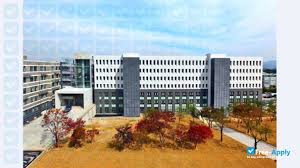Miami University, located in Oxford, Ohio, is a distinguished public research university known for its strong academic programs, vibrant campus life, and commitment to student success. Established in 1809, it is one of the oldest institutions of higher learning in the United States and has a rich history intertwined with the development of the American education system.
Historical Background
Miami University was founded as a small college in the early 19th century, primarily aimed at serving the educational needs of the growing population in the Northwest Territory. The university was named after the Miami Tribe, reflecting the region’s heritage. Over the years, Miami has evolved from a local institution to a nationally recognized university, gaining a reputation for its rigorous academic standards and commitment to liberal arts education.
Throughout its history, Miami has embraced a philosophy of education that emphasizes critical thinking, ethical reasoning, and lifelong learning. This commitment has been instrumental in shaping the university’s identity and guiding its growth.
Academic Structure
Miami University offers a diverse array of undergraduate and graduate programs across various fields of study. The academic structure is divided into several colleges:
- College of Arts and Science: This is the largest college at Miami, offering majors in the humanities, social sciences, and natural sciences. The curriculum is designed to foster critical thinking and creativity.
- Farmer School of Business: Renowned for its rigorous programs in business administration, finance, marketing, and management, the Farmer School emphasizes experiential learning through internships and real-world projects.
- College of Education, Health, and Society: This college prepares students for careers in education, health, and social work, emphasizing community engagement and practical experience.
- College of Engineering and Computing: Offering degrees in various engineering disciplines and computer science, this college focuses on innovation and technological advancement.
- College of Creative Arts: This college supports students pursuing degrees in music, theater, art, and design, fostering artistic expression and collaboration.
- Graduate School: Miami offers a range of graduate programs that encourage advanced study and research across disciplines, enhancing the university’s role as a research institution.
Research and Innovation
Miami University is committed to fostering a robust research environment, encouraging faculty and students to engage in innovative projects that address pressing societal challenges. The university supports various research initiatives, from environmental sustainability to health sciences and technology development.
Research centers and institutes across campus facilitate collaboration among disciplines, allowing students and faculty to work together on cutting-edge projects. Miami’s focus on undergraduate research provides students with invaluable opportunities to participate in hands-on experiences, often leading to publications and conference presentations.
Campus Life
The campus of Miami University is known for its picturesque beauty, featuring historic buildings, well-maintained green spaces, and modern facilities. The university’s commitment to creating a vibrant community is reflected in its extensive student life offerings.
Students can engage in a wide range of extracurricular activities, including over 600 student organizations, sports teams, and cultural groups. This diversity ensures that every student can find their niche, whether through leadership roles, artistic pursuits, or community service.
Miami’s residential life program fosters a sense of belonging and connection among students. The university offers a variety of housing options, from traditional residence halls to themed living communities that focus on specific interests or academic disciplines.
Global Engagement
Recognizing the importance of a global perspective in today’s interconnected world, Miami University encourages students to engage with international cultures and perspectives. The university offers numerous study abroad programs, allowing students to immerse themselves in different countries and learn from diverse educational systems.
Additionally, Miami hosts a variety of international students, enriching the campus community and promoting cross-cultural understanding. Language programs and global studies initiatives further enhance students’ opportunities to develop global competencies.
Career Development
Miami University is dedicated to preparing its students for successful careers after graduation. The university’s Career Services provides comprehensive support, including resume workshops, interview preparation, and job placement assistance. Networking events and career fairs connect students with potential employers, allowing them to explore various career paths.
Internship opportunities abound, with many programs requiring or strongly encouraging practical experience. This emphasis on real-world learning ensures that graduates possess the skills and knowledge needed to thrive in their chosen fields.
Commitment to Diversity and Inclusion
Miami University is committed to fostering a diverse and inclusive campus environment. The university values the richness that diverse perspectives bring to the academic community and actively promotes initiatives that support underrepresented groups.
Programs and resources aimed at enhancing diversity include mentorship opportunities, cultural events, and educational workshops. Miami seeks to create a supportive atmosphere where all students feel valued and empowered to succeed.
Alumni Network
The university boasts a strong alumni network that plays a crucial role in supporting current students. Miami alumni are active in various fields and often return to campus to share their experiences and insights, providing valuable networking opportunities for students.
The alumni association organizes events, mentorship programs, and career resources, ensuring that graduates remain connected to the university and to each other. This sense of community extends beyond graduation, fostering lifelong relationships and support.
Conclusion
Miami University stands out as a premier institution of higher education that combines a rich historical legacy with a forward-looking approach to learning. Its diverse academic offerings, commitment to research and innovation, and vibrant campus life create an enriching environment for students. With a focus on global engagement, career development, and diversity, Miami University prepares its graduates to succeed in a complex world while contributing positively to society. As it continues to evolve, Miami remains dedicated to its mission of providing a transformative educational experience that empowers students to reach their full potential.
